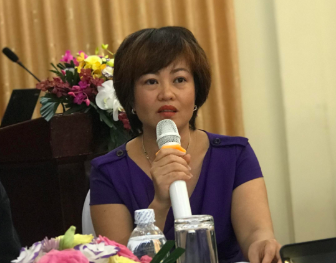Vietnam turns semiconductor vision into action
The global semiconductor industry is being reshaped by geopolitical tensions, shifting supply chains, and the surge of digital technologies.




Vietnamese people now must pay for about 40 per cent of health services, a very high rate, causing about 700-800 thousand households to fall into poverty each year, according to a senior Oxfam expert.

Nguyen Thu Huong, senior expert at Oxfam in Vietnam, said that there exist two viewpoints on the development of public services such as health, education in general in the world. The first viewpoint is the free competition following the market rules and provision of services based on the market demand.
This viewpoint leads to the privatization of education, health and electric services. Since then, there are conflicts and inequalities in society because large numbers of people, who are unable to pay for services or access such services like the rich.
The second viewpoint is based on equality and fairness among people for public services such as health and education. Accordingly, women and men benefit equally, the weak and vulnerable people have special priorities for them to enjoy public services equally.
According to Huong, with a viewpoint on the free competition, the health system will be developed in the form of fee collection. Everyone who gets medical check-ups or treatments must pay fees. They might pay directly with their own money, or through insurance, risk sharing.

However, people must afford to buy insurance. Meanwhile, it is very difficult for informal workers with low incomes to buy insurance.
According to Oxfam's research, in Vietnam, people now must pay for about 40 per cent of health services, a very high rate. The rest is paid from insurance, the State budget.
"This is creating a social inequality. In Thailand or Malaysia, people do not have to pay so much for health services. This rate should be maintained at 20 per cent," Huong stated.
The high self-pay for health services inevitably leads to poverty. Specifically, every year an average of 700,000 - 800,000 Vietnamese households fall into poverty due to their self-pay for health services.
Development of public services is to ensure social justice
The public services system should be built on the core values of social justice, redistributing social welfare to different groups of people, including those who might not afford to ensure equality.In this system, taxes would be collected to pay for public services such as health and education services. The Government would reinvest all proceeds from taxes in public services like health. As a result, people including the rich and the poor would get the free health care and enjoy equally.
The poverty rate due to medical expenses is only 0.3 per cent, while in Vietnam it is 10 times higher.
Another reason to maintain the fairness in using public services is that in the past 30 years, the gap between the rich and the poor has continued to widen sharply. The world’s richest one per cent gets 50 per cent of the wealth.
According to the World Bank’s forecasts, by 2020, poverty and inequality will continue to increase, negatively impacting economic growth and social development achievements. Therefore, in policies that affect equality as taxes - a tool to redistribute the whole society, the rich should be taxed more to budget for public services.
Vietnam needs to be more efficient in tax collection policies to invest in public services such as health and education to serve people's needs. At the same time, the tax policies should abolish unnecessary tax incentives for enterprises.
Transferring taxes from the rich to the poor like VAT increase is a big risk due to the transfer of the tax burden to the poor. Meanwhile, tax exemption for large enterprises is irrational, Huong stressed.
The global semiconductor industry is being reshaped by geopolitical tensions, shifting supply chains, and the surge of digital technologies.
The change in APA approval authority is expected to shorten processing time and enhance business proactiveness in international tax negotiations.
As hybrid cloud systems grow more complex, Vietnamese enterprises are struggling to detect cybersecurity threats moving laterally within their own networks.
The submission of the draft resolution on Vietnam’s international financial center to the National Assembly heralds a new developmental era for the country.
More than just running a 5-star resort, Kristian Petersen is redefining the art of hospitality with a humane and sustainable leadership philosophy.
For Tyna Huynh, co-founder of Drinkizz, organic is not just a food choice but a way of life that fosters a deep connection between people, nature and community.